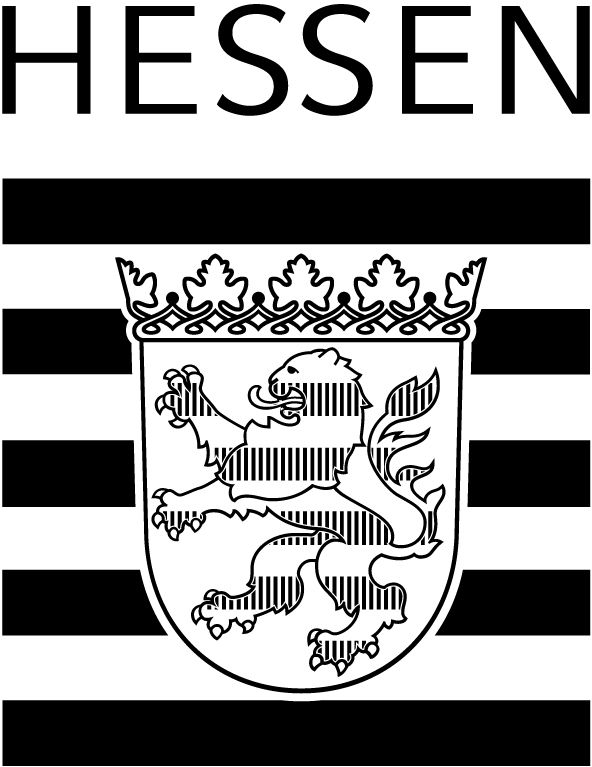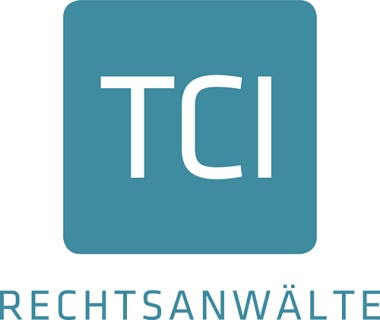
ARBITRATION AND MEDIATION CENTER
ADMINISTRATIVE PANEL DECISION
Frosch Sportreisen GmbH v. E. A.
Case No. D2012-0577
1. The Parties
Complainant is Frosch Sportreisen GmbH of Münster, Germany, represented by Res Media, Kanzlei für IT und Medienrecht, Germany.
Respondent is E. A. of Izmir, Turkey.
2. The Domain Name and Registrar
The disputed domain name <froschreisen.com> is registered with PSI-USA, Inc. dba Domain Robot (the “Registrar”).
3. Procedural History
The Complaint was filed with the WIPO Arbitration and Mediation Center (the “Center”) on March 20, 2012. On March 21, 2012, the Center transmitted by email to the Registrar a request for registrar verification in connection with the disputed domain name. On the same date, the Registrar transmitted by email to the Center its verification response disclosing registrant and contact information for the disputed domain name which differed from the named Respondent and contact information in the Complaint.
Complainant filed an amendment to the Complaint on March 21, 2012 providing the registrant and contact information disclosed by the Registrar.
The Center verified that the Complaint together with the amendment to the Complaint satisfied the formal requirements of the Uniform Domain Name Dispute Resolution Policy (the “Policy” or “UDRP”), the Rules for Uniform Domain Name Dispute Resolution Policy (the “Rules”), and the WIPO Supplemental Rules for Uniform Domain Name Dispute Resolution Policy (the “Supplemental Rules”).
On March 28, 2012, the Center received an email communication in German from Respondent providing arguments against the Complaint filed against it. Respondent filed said arguments in English on April 2, 2012.
On April 2, 2012, the Center received an email communication from Complainant in response to Respondent’s arguments.
In accordance with the Rules, paragraphs 2(a) and 4(a), the Center formally notified Respondent of the Complaint, and the proceedings commenced on April 3, 2012. In accordance with the Rules, paragraph 5(a), the due date for Response was April 23, 2012. The Respondent did not file a formal Response.
Accordingly, on April 24, 2012, the Center notified the Parties of the expiry of the due date for Response and that it would proceed to appoint the Administrative Panel.
The Center appointed Bernhard Meyer as the sole panelist in this matter on May 4, 2012. The Panel finds that it was properly constituted. The Panel has submitted the Statement of Acceptance and Declaration of Impartiality and Independence, as required by the Center to ensure compliance with the Rules, paragraph 7.
The Complainant submitted a further communication to the Center on May 24, 2012.
4. Factual Background
Complainant is a German tour operator founded in 1984 and signing by the firm name Frosch Sportreisen GmbH since 1990. The purpose of the company is the organization, implementation and procuration of travel, especially sports travel, and related customized services. According to Complainant, its turnover in 2010 amounted to approximately EUR 22.78 million.
Complainant is the holder of the German trademark no. DE302010043150 Frosch Sportreisen (figurative), registered before the German Trademark Office on September 22, 2010. This trademark is for goods and services within the Nice Classes 16, 18, 24, 25, 28, 35, 39, 41 and 43 and, particularly, for travel business (Nice Class 39) and advertising (Nice Class 35).
Respondent is a Turkish online tour operator. According to its website, it was launched in 2002 and calls itself to be “the largest online travel provider for [sic] the world”. On its website, Respondent offers travel related products and services in five languages.
5. Parties’ Contentions
A. Complainant
Firstly, Complainant contends to be not only the holder of the trademark Frosch Sportreisen but also being well known in Germany as a famous tour operator. It argues that it offers its services and is present on the Internet inter alia under “www.frosch-sportreisen.de” and uses the name “Frosch” and “Frosch Reisen” in the field of travel intensively at least since 1990.
Secondly, Complainant claims that the disputed domain name <froschreisen.com> is confusingly similar to Complainant’s trademark Frosch Sportreisen by reproducing the element “Frosch” as the defining and distinctive element of Complainant’s trademark. Complainant additionally contends that the disputed domain name is confusingly similar to its unregistered trademarks FROSCH and FROSCH REISEN. It asserts that the words “Sportreisen” and “Reisen”, and the gTLD suffix “.com”, are not of distinguishing effect and must not be considered for the purpose of comparison between the (registered and unregistered) trademarks and the disputed domain name.
Thirdly, Complainant alleges that Respondent has no rights or legitimate interests with respect to the disputed domain name. Respondent neither has a trademark or service mark on its own containing the designation “Frosch” or “Frosch Reisen”, nor is it commonly known as such, and has not established a reputation or built any commercial good-will under the disputed domain name.
Fourthly, Complainant contends that the disputed domain name has been registered and is being used in bad faith. Complainant alleges that it is highly unlikely that Respondent ignored the existence of Complainant’s famous trademark. Complainant assumes that Respondent acts as a dummy for a person named Mr. C.-U. from Munich, who has been ordered by the regional court of Frankfurt to refrain from using the disputed domain name. According to Complainant, Respondent also intentionally used the corporate name of Complainant “Frosch Sportreisen” as a keyword within the source code of the website “www.froschreisen.com” in order to divert users searching for the company of Complainant via search engines. Therefore, according to Complainant, Respondent creates a likelihood of confusion with Complainant’s trademark, corporate name, and service mark as to the source, sponsorship, affiliation, or endorsement of the disputed domain name.
Consequently, Complainant requests the transfer of the disputed domain name to Complainant.
B. Respondent
As mentioned, Respondent did not formally reply to Complainant’s contentions. But on March 28, 2012, and on April 2, 2012, the Center received email communications from Respondent providing arguments against the Complaint filed.
The Rules grant the Panel sole discretion to determine the admissibility of evidence which may even include unsolicited filings. In the present case, Respondent reacted to the Complaint, albeit not within the specific time window provided by the Rules. Nevertheless, looking at substance rather than form, the Panel takes into consideration Respondent’s contentions in order to ensure that each party has a fair opportunity to present its case (see paragraph 10(b) of the Rules). It goes without saying that – under these circumstances – not only Respondent’s email but also Complainant’s reply to it, which was filed on April 2, 2012, needs to be taken into account.
Substantially, Respondent relevantly asserts that it has been the owner of the disputed domain name since approximately 2002 and that Complainant has registered its trademark FROSCH SPORTREISEN only in 2010. Additionally, Respondent explains that Mr. C.-U. (whose corporate name is “K.”) would not be the owner of the disputed domain name but only its webhosting provider in Germany. Respondent claims the recent change of the registrant information would have been necessary because its employee (the former registrant of the disputed domain name) died. Additionally, Respondent provides the names of two additional companies in the touristic branch in Germany containing the word “Frosch” in their company name. Mutatis mutandis, Respondent thus requests denial of the Complaint.
C. Complainant’s Supplemental Filings
In its reply to Respondent’s communications, Complainant contends that Mr. C.-U. nonetheless would have operated the website “www.froschreisen.com” and it attached screenshots of the former website “www.froschreisen.com” and “www.k(…).com” (another website of Mr. C.-U.) which show that the telephone numbers of the operators of the two websites are identical. Complainant refers to German Law (Section 5 Telemedia Act) which states that the contact details within the WhoIs have to be the contact details of the operator of the website and not the contact details of the webhosting provider.
Furthermore, according to Complainant, these facts had been confirmed by an annexed decision to the Complaint of the regional court of Frankfurt. Complainant asserts that it was proven in that proceeding that the email address of Respondent, “[…]@yahoo.de”, was the private email address of Mr. C.-U. who used the email address on different websites.
On May 24, 2012, a further unsolicited email was sent by Complainant to the Center and forwarded by the Center to the Panel. In this email, Complainant informed the Center and the Panel that the court decision of the regional court of Frankfurt, attached as Annex 6 to the Complaint, had become res judicata. Under the liberal spirit as mentioned above, the Panel also accepts this additional information by Complainant which remained uncontested by Respondent.
6. Discussion and Findings
According to paragraph 4(a) of the Policy, in order to succeed with its claim, Complainant must prove that each of the three following elements is present:
(i) The disputed domain name is identical or confusingly similar to a trademark or service mark in which Complainant has rights; and
(ii) Respondent has no rights or legitimate interests in respect of the disputed domain name; and
(iii) The disputed domain name has been registered and is being used in bad faith.
A. Identical or Confusingly Similar
The disputed domain name comprises three elements: a) the word “Frosch”, b) the word “Reisen”, and c) the gTLD suffix “.com”.
It is uncontested and supported by evidence that Complainant is the holder of a registered trademark containing the two terms “Frosch” and “Reisen”.
When Respondent asserts that it controlled the disputed domain name since approximately 2002 whereas Complainant registered its trademark in 2010 only, it overlooks that the registration of a domain name prior to a complainant acquiring trademark rights does not, as such, prevent a finding of identity or confusing similarity with the disputed domain name under the UDRP. The UDRP makes no specific reference to the date on which the holder of the trademark or service mark acquires rights. The filing date may, however, become relevant when the question of bad faith is addressed. Under such circumstances it may be more difficult to prove that the domain name was registered in bad faith (see WIPO Overview of WIPO Panel Views on Selected UDRP Questions, Second Edition (“WIPO Overview 2.0”), paragraph 1.4).
In the present case, the only difference between Complainant’s trademark and the disputed domain name is the absence of the word “Sport”. The addition of merely generic, descriptive, or geographical words to a trademark in a domain name is normally insufficient to avoid a finding of confusing similarity under the first element of the UDRP (see WIPO Overview 2.0, paragraph 1.9). Thus, the Panel finds that the dominant portion “Frosch” of Complainant’s trademark is incorporated in the disputed domain name and that – by analogy – the omission of the word “Sport” must not be considered as providing a basis of distinctiveness for the purpose of comparison between the trademark and the disputed domain name (see Archer-Daniels-Midland Company v. Robyn Bodine (a.k.a. D.L. Tate, Donnie Tate), WIPO Case No. D2002-0482). The Panel also agrees with Complainant that the top-level suffix “.com” in the disputed domain name may be disregarded under the test of confusing similarity as it is a technical requirement of registration.
Taking the above into consideration, the Panel considers that there is a risk that Internet users may actually believe that there is a connection between the disputed domain name and Complainant’s services (see Sports Holdings, Inc. v. Hoffman Hibbett, WIPO Case No. D2007‑0283).
Therefore the Panel holds that Complainant has established the first element of the Policy, paragraph 4(a).
B. Rights or Legitimate Interests
Complainant has established a prima facie case that Respondent lacks rights or legitimate interests in the disputed domain name. It is the consensus view of UDRP panelists that once a complainant has established a prima facie case, it is respondent’s responsibility to prove otherwise (See e.g. Nicole Kidman v. John Zuccarini, d/b/a Cupcake Party, WIPO Case No. D2000-1415; Inter-Continental Hotels Corporation v. Khaled Ali Soussi, WIPO Case No. D2000-0252).
The Panel now examines whether Respondent may have rights or legitimate interests in the disputed domain name because the disputed domain name combines words of general linguistic usage (namely “Frosch” (in English “frog”), and “Reisen” (in English “travel”)). When assessing this possibility, the Panel may evaluate the status and fame of Complainant’s trademark. Turning to the evidence in this case, the Panel finds that Complainant has alleged sufficient facts to establish extensive use and recognition of its trademark. Complainant advances that it has been known under the designations “Frosch Sportreisen” and “Frosch” for more than twenty years in connection with travel related services. The trademark is in active use on Complainant’s website, and a search in “www.google.de.com” for the word “Frosch” produces the website of Complainant in the first place. To its filing, Complainant also attached a decision of the regional court of Frankfurt which confirms that Complainant owns a famous service mark in Germany for the defining elements “Frosch” and “Frosch Sportreisen”. Under these circumstances, Respondent may acquire a right to a domain name containing the dictionary word “Frosch” only if it uses it in connection with a purpose relating to the generic or descriptive meaning of this term (e.g. for a genuine website relating to the animal “Frosch”, in English “frog”, or any similar relied-upon meaning), but not if the site is aimed at offering services that appear to compete with those offered by Complainant (travel) (see WIPO Overview 2.0, paragraph 2.2). The evidence supplied in this case does not appear to the Panel to demonstrate use in connection with the generic or descriptive meaning of the words composing the disputed domain name, but rather appears to the Panel to demonstrate use that trades off the Complainant’s rights.
Hence, there is no evidence of Respondent’s use of, or demonstrable preparations to use, the disputed domain name in connection with a bona fide offering of goods or services (see paragraph 4(c)(i) of the Rules), nor has Respondent provided evidence of being commonly known by the disputed domain name (see paragraph 4(c)(ii) of the Rules) or has been making a legitimate non-commercial or fair use of the disputed domain name without intent to mislead consumers or to tarnish the trademark at issue (see paragraph 4(c)(iii) of the Rules).
For all these reasons the Panel concludes that Complainant has satisfied paragraph 4(a)(ii) of the Policy.
C. Registered and Used in Bad Faith
Paragraph 4(b)(iv) of the Policy provide that the following situation, amongst others, evidence registration and use of the domain name in bad faith:
“By using the domain name, Respondent has intentionally attempted to attract, for commercial gain, Internet users to its website or other on-line location, by creating a likelihood of confusion with Complainant’s mark as to the source, sponsorship, affiliation, or endorsement of Respondent’s website or location or of a product or services on Respondent’s website or location”.
The Panel takes account of the following facts in making its decision in this regard:
Complainant’s trademark was shown to be well-known and in wide use on the Internet, and it has utilized its name FROSCH SPORTREISEN since 1990, especially in Germany. When visiting Respondent’s website, it is noticeable that Respondent’s services are offered initially in German and are addressed to the German speaking public. From the above, it also is apparent that Respondent’s intent is to offer identical services as Complainant and that the website is misleading Internet users for commercial gain. Under these circumstances, it is rather obvious that Respondent knew or should have known about the existence of Complainant’s trademark at the time the disputed domain name was registered, whether in March 2012, as confirmed by the Registrar, or in 2002, as claimed by the Respondent.
For the Panel, Respondent’s assertions regarding the connections between Ercuement Alp, its former employee (and former registrant of the disputed domain name), and Mr. C.-U. are not fully understandable, nor convincing. The fact that the registrant of the disputed domain name may have recently changed does not render the prior or subsequent registration and use of the disputed domain name more legitimate. Furthermore, Respondent does not dispute Mr. C.-U.’s instrumental role in the registration process. And the fact that the regional court of Frankfurt’s decision in the meantime has become final and binding again supports a finding of bad faith.
Therefore, the requirements of paragraph 4(a)(iii) of the Policy are sufficiently made out by Complainant to the Panel.
7. Decision
For all the foregoing reasons, in accordance with paragraphs 4(i) of the Policy and 15 of the Rules, the Panel orders that the disputed domain name, <froschreisen.com>, be transferred to the Complainant.
Dr. B. M.
Sole Panelist
Dated: May 28, 2012




